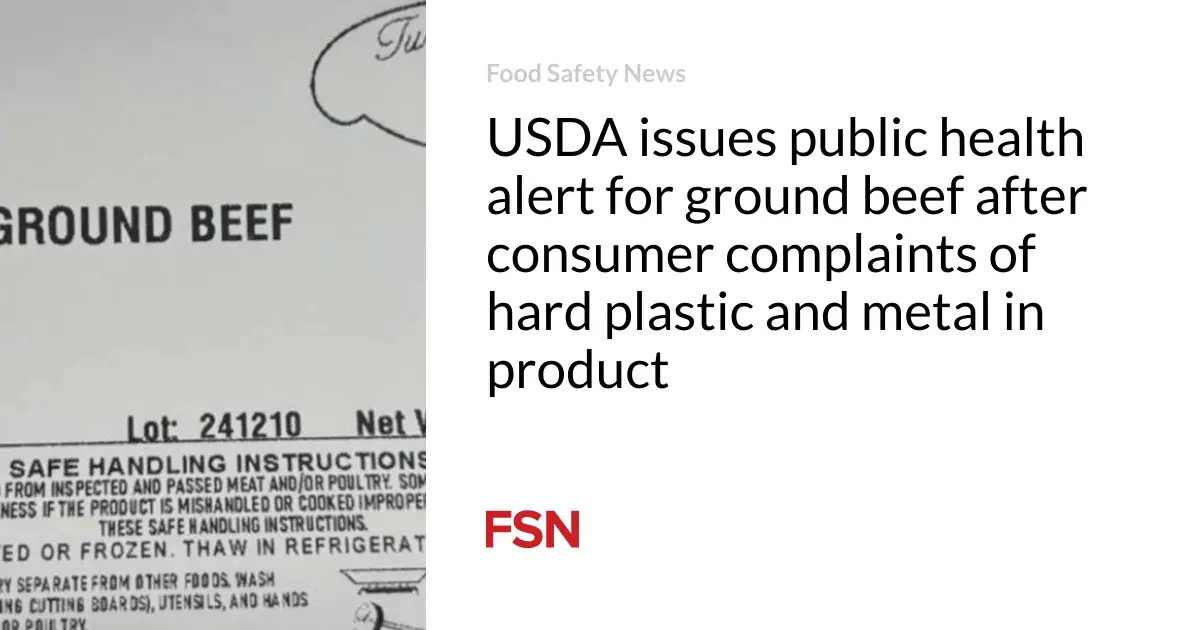When Rosemary Duff heard how long she would have to wait for a hip replacement operation on the NHS, she felt she had no choice but to dip into her savings.
“I waited a month to see my GP, then another four months to see a consultant. His opening words were ‘unless you go private, there’s an 18-month waiting list’, which was a bit of a shock,” said Duff, 71, from Norwich. “Much against my principles, I agreed to go private.”
Duff said her hips had started to play up after the first Covid lockdown, and she had physio through the NHS that had slowed down the deterioration. But a year ago she began experiencing increased pain, was not able to walk very far and struggled to get up the stairs.
Duff, who worked in market research before retiring, spent almost £28,000 having both hips replaced last year at a private hospital run by Circle Health Group. “A lot of money out of my savings, but my children said I should go ahead and do it!” she said.
The same consultant surgeon who advised her to go private then performed the surgery at the Clementine Churchill hospital in Harrow.
Many consultants split their time between working for the NHS and the private sector, with rules in place aimed at avoiding conflicts of interest.
Lengthening NHS waiting lists, which hit a peak of nearly 7.8 million in England in September, have prompted more people to take out private medical insurance in recent years, despite its rising cost. Others are dipping into savings or taking out loans to pay for routine operations, often spending thousands of pounds.
The waiting list was still 7.5 million in February, compared with 4.6 million before the Covid-19 pandemic, according to the British Medical Association, and close to half of the patients had been waiting for 18 weeks or longer. The waiting list is expected to “start to fall consistently but slowly from the middle of 2024”, the Institute for Fiscal Studies predicts – though it is likely to exceed pre-pandemic levels until 2030.
Private hospitals were drafted in by the NHS during the pandemic to help with the surge in Covid admissions and only the most urgent operations were done, leaving a huge backlog of “non-urgent” procedures. But the NHS waiting list was already rising before the pandemic, as far back as 2018 – leading to a two-tier system where many people see no other option but to go private.
To deal with the booming demand for private healthcare, insurers Axa and Aviva had to recruit and train significant numbers of extra call-centre staff last year. Discussing health conditions is not the same as making a motor claim, one senior insurance executive noted.
Duff said: “I am now fully mobile again and feel like I have got my life back.” She keeps active – looking after her one-year-old granddaughter once a week, tending her allotment, walking and swimming. She is also secretary to the local Labour party. She inherited some money when her mother died last year, so the cost of the surgery “hasn’t completely wiped me out. But it has made a big hole.”
She added: “What makes me so angry is that there are a lot of people out there who probably have jobs that they are dependent on that they’re no longer able to do, because they have joint health problems – their hips aren’t working. And it’s such an easy operation to sort things out.”
More people are following Duff and paying out of their own pocket, despite the cost. A knee replacement typically costs between £12,000 and £15,000; a new hip costs between £9,000 and £16,500, and cataract removal between £2,000 and £4,000, according to 2023 figures from the health data provider LaingBuisson.
Self-pay has increased to the point where it made up 28% of private hospitals’ revenue in 2022, including overseas patients, while procedures covered by medical insurance accounted for 41%, and payments from the NHS, which have tripled since 2003, accounted for 31%, says LaingBuisson. The struggling state health service has been buying cancer care, cardiology and other services from private hospital groups in recent years, prompting concerns about creeping backdoor privatisation.
The private health sector has grown steadily: the combined turnover of private hospitals, primary care (GPs) and dental services has increased almost fourfold since 2010, from £1.3bn to £4.9bn in 2023, data from the Office for National Statistics (ONS) shows. The figures are not adjusted for inflation.
Some say this trend, and the government’s unwillingness to fund the NHS adequately, increasingly undermines state healthcare.
“You’ve now got more and more people who are having to pay out of their own pockets for things like dental care or operations that aren’t available on the NHS,” said David Rowland, director of the thinktank Centre for Health and the Public Interest.
“You’ve got a trend there, which is the state government moving responsibility for paying for healthcare away from collective resources, taxpayer income, back on to the individual. Nobody’s being honest about the extent to which this is happening. No politician has stood up and advocated for it. It’s a trend which has been happening increasingly over the past 30 years with Labour, Conservative and Lib Dem parties in charge.”
UK private healthcare is mainly provided by a handful of companies that run hospitals and GP and dental practices: Abu Dhabi-owned Circle Health Group and the FTSE 250 firm Spire Healthcare are the two biggest, followed by the US company HCA Healthcare and the UK charity Nuffield Health, and Australia’s Ramsay Healthcare.Spire’s revenues climbed 13% to £1.4bn last year and it made pre-tax profits of £34.6m, up from £3.9m in 2022 when the business was still recovering from the pandemic. Circle posted an £87m pre-tax loss in 2022, a deterioration on £51m the year before, partly due to one-off costs, according to the latest results filed with Companies House. It had revenues of more than £1bn.
UK state spending on healthcare was £283bn in 2022, according to the ONS, up 0.7% from 2021. However, adjusting for the impact of inflation, spending declined by 4.5%. Further analysis by the Organisation for Economic Cooperation and Development shows that the UK spent less on healthcare in 2022 as a percentage of GDP (11.3%) than the US (16.6%), Germany (12.7%) and France (12.1%).
At the same time, the UK health cover market – including medical insurance and cash plans – has been growing much faster than in the past, reaching £6.7bn in 2022, up 6.1% from 2021, according to LaingBuisson.
Despite the steep average annual cost of £2,252, more people have been forking out for individual medical insurance. Those who can get cover through their employers are much better off, with the average work policy costing £975.
Among the growing number of people with private medical insurance is Lisa Maynard-Atem, 46, from Manchester, who is a freelancer and advises firms on digital marketing. She bought the insurance policy in May 2022.
“We’ve all seen the issues with the NHS – and that’s no disrespect to the NHS, but obviously they are under a lot of pressure,” she said. “The services aren’t what they once were. I was just worried about waiting times. If there’s an emergency, I don’t want to have to wait. It’s my health: I want to get seen as soon as I possibly can.”
Maynard-Atem has thought about cancelling her insurance but was glad she kept it when a dental filling fell out, resulting in pain and headaches.
“The NHS dentist that I spoke to said it would be six weeks. I know I can’t wait six weeks. So I went to a private dentist and managed to get in straight away, but it cost me over £400.” She had a full filling and dental cleaning done, and got most of the cost back from her insurer, London-based Vitality, which is owned by South Africa’s Discovery. Following a dispute, she switched to Bupa, where she pays £113 a month for health cover.
The main players in UK medical insurance are Bupa, Axa, Aviva and Vitality, which together control more than 90% of the market. Bupa, which dates back to 1947, a year before the birth of the NHS, has 3 million UK customers, Axa nearly 3 million, Aviva 1.2 million and Vitality 1 million. This means more than 8 million people are covered by private health insurance, both individual and workplace policies – more than one in 10 people in the UK.
Even some smaller employers are now offering health insurance as a perk, in the realisation that if staff struggle to get medical treatment and are absent for longer, it ends up being more costly for the business.
Liz Edwards of the personal finance comparison site finder.com said: “For many people, every day waiting for an operation is another day of pain or poor mobility or limited eyesight. There have been many stories of Brits using their savings to pay for treatment rather than face months while life is on hold.”
Jess Rushton, 32, from Huddersfield, who works for the comparison site Smart Money People, has endometriosis, a condition where tissue similar to the lining of the womb grows elsewhere in the body, causing severe pelvic pain, problems getting pregnant and other issues.
Her first operation was paid for by private health insurance via her previous employer, but when she changed jobs she found she could not obtain private cover for her condition. She paid for her last operation herself, at a cost of £6,000, through an interest-free loan with Omni Capital Retail Finance that had to be paid back within 10 months. The NHS would only offer her surgery if the condition became so debilitating that she could not work, she said.
“The NHS won’t even consider surgery until I’m bedbound and unable to work, or turning up at A&E three times a week,” Rushton said. “The NHS waiting list is so long; there are people that have got their whole lives on hold. Just to get a diagnosis takes eight years because it [endometriosis] gets misdiagnosed as so many different things.”
She and her partner are saving up for her third surgery in the next 18 to 36 months, which is likely to cost £12,000, because it is more complex and medical costs have gone up. She has also been diagnosed with adenomyosis, where the lining of the womb starts growing into the muscle in the wall of the womb.
“My uterus and ovaries were stuck to my hip last time, and I was starting to get really bad mobility problems,” she said. “One of the problems with endometriosis is you are likely to have to have an operation every three to five years in order to remove the tissue because it continues to grow. It can grow anywhere, so it affects my bowels, my bladder – that’s different scans and different operations. So it’s pretty uninsurable.”
The pandemic has added to pressure on the health service, with mental health worsening in recent years. Axa Health, which was founded in 1940 as the Association for Hospital Services, and was acquired by the French company Axa in 1999, said demand for mental wellbeing coverage had surged by 160% since 2020.
Axa said customers were now making 55,000 digital GP appointments a month compared with 17,000 before the pandemic. Claims for muscles, bones and joints remain high, as well as for cancer treatment, digestive health, and skincare treatments, which are hard to obtain quickly on the NHS.
People are making more frequent health claims for anything from physiotherapy to more expensive surgeries, according to Aviva boss Amanda Blanc.
The rise in claims, coupled with higher medical costs caused by higher wage and energy bills, is driving up insurance premiums. Insurers are pushing through rises of between 10% and 40% this year, with more increases likely in coming years, according to LaingBuisson.
Insurers recognised that this could push health cover beyond the bounds of affordability and were developing more modular products, said Tim Read, LaingBuisson’s head of research. These will allow people to pick and choose parts of their cover – dropping, for example, cancer coverage, which would reduce costs. “Cancer coverage is what adds a fair bit of money into the cost of a premium,” he said.
The NHS crisis will be a key issue in the general election, and a tough inheritance for the next government. Wes Streeting, the shadow health secretary, has defended Labour’s plans to use the private sector to help cut the NHS backlog, arguing that a failure to do so would result in a “betrayal” of working-class people who cannot afford to pay for private care.
Streeting also told the Guardian that the NHS would be privatised “over my dead body”, adding that his longer-term ambition was for no one to be forced to pay and for the NHS not to rely on private care at all.
Read said: “It’s hard to see what levers a new Labour government can pull to bring down the NHS waiting list quickly … so over five or six years, maybe, we’ll get down to more manageable levels.
“But in the meantime, the private health cover market is likely to grow, and perhaps by that point people will be much more au fait with the idea of paying out of pocket for some things, or for insurance.”








